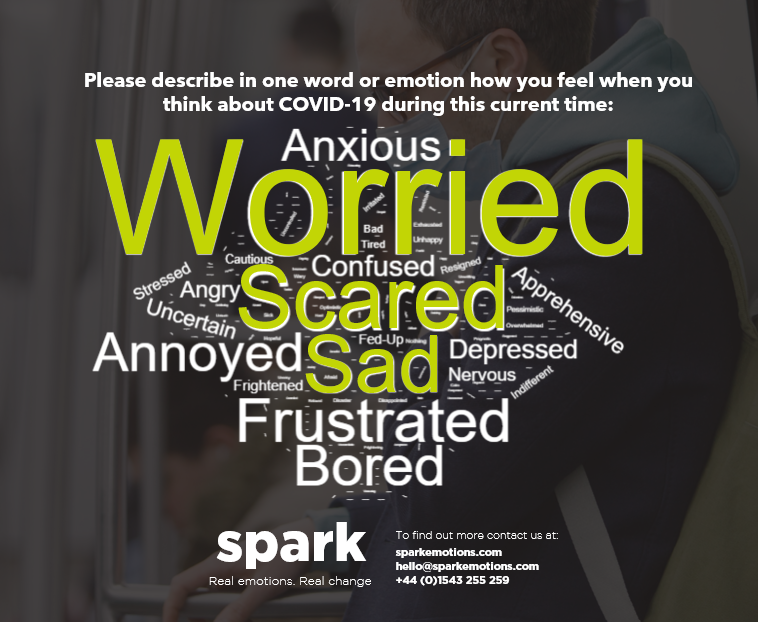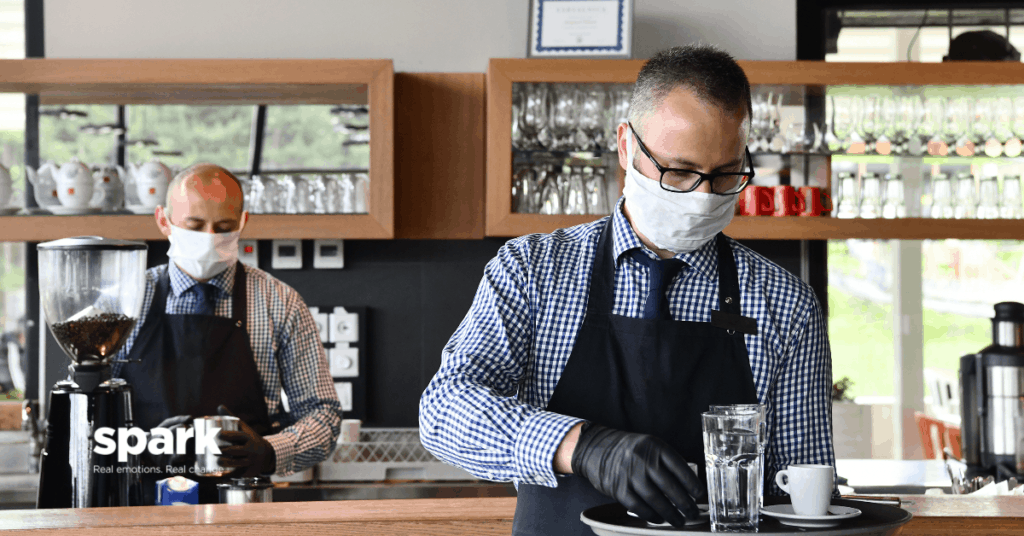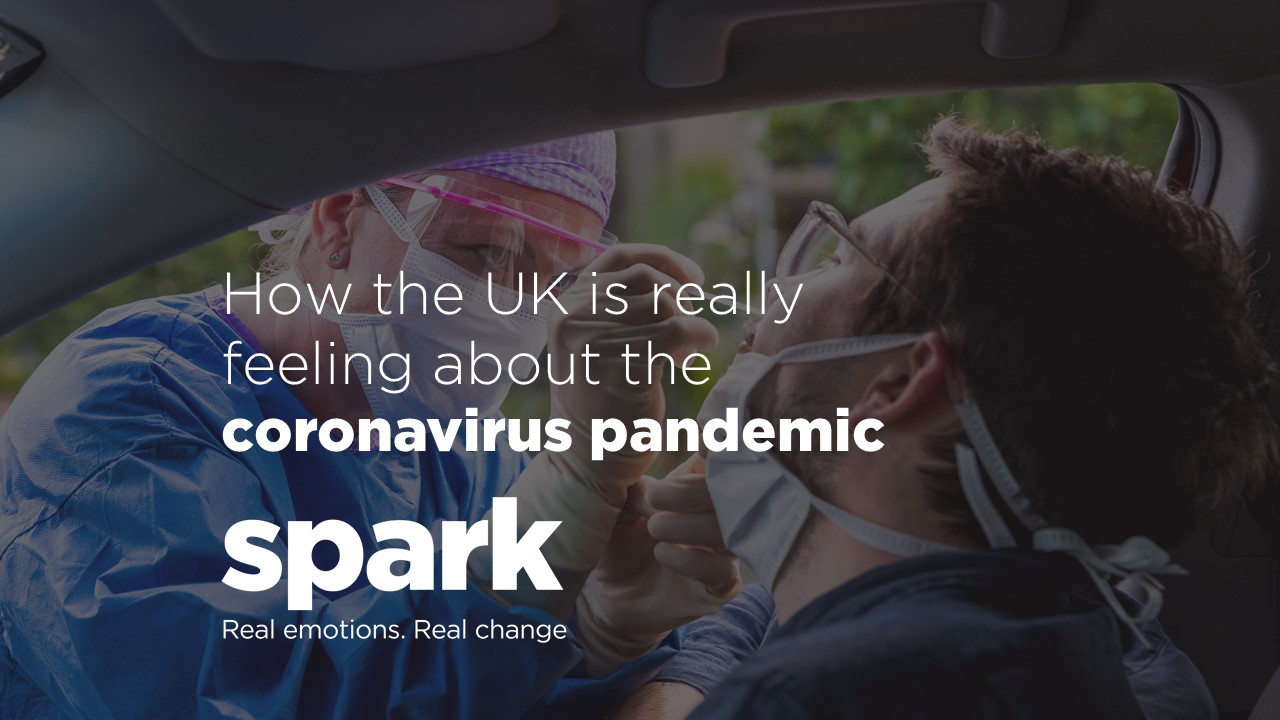At Spark Emotions, we wanted to truly understand how people in the UK are feeling about the current state of the coronavirus pandemic. Spark Emotions is a team of consumer psychologists and industry leaders that help our clients grow by understanding the science behind their customers’ behaviour to give actionable insights that are proven to drive business growth.
In October, we spoke to over 1000 people in the UK to get a nationally representative sample of the nation. Our team then analysed the results to really understand what the data is telling us.
What are the UK’s emotions about the coronavirus pandemic?
Using our exclusive Spark Emotional Wheel, we are able to understand the emotions of the nation. Our algorithm plots the exact emotion that people are feeling towards something, whether that be a brand, a store, or even the current state of the entire world around them.
The significant emotions that UK adults used to describe how they feel when thinking about COVID-19 are primarily worried, scared and sad. These emotions are likely to give rise to behaviours such as panic buying and stockpiling. Other key emotions were annoyed, frustrated and bored which is unsurprising as the UK braces for the second wave of coronavirus, and will no doubt bring tighter restrictions and more lockdowns.
This second wave of the coronavirus differs from the first, in that, unlike the first wave of coronavirus, children are currently still in school. This could be an indication to why parents were the most concerned about the second wave in our sample with 44% of parents with children under 18 saying they feel more concerned than they did during the first wave in March.

Hospitality visits declined significantly since the sector first opened
Hospitality visits have decreased since the sector first reopened, perhaps as the UK tries to curb the spread. Pub visits saw a decrease of 30% down to 14% of UK adults saying they had visited in the past week and 19% of adults said they had visited a restaurant or café, a decrease of 28%. However, despite the decrease in visits to hospitality venues, 50% of UK adults report visiting family and friends outside of their household weekly or more.

The vast majority of the UK is taking precautions against coronavirus
Our research found that 97% of the UK are taking precautions against COVID-19. 92% are wearing facemasks in public places, 85% are maintaining a safe distance from others and 70% are using hand sanitiser stations to name a few. Facemasks, social distancing and washing hands have been the most common actions taken by people and these are the key safety messages encouraged by the government throughout the pandemic. It seems that the public are following the government’s advice, and to make this as easy as possible, businesses should be ensuring people are provided with the necessary products to protect themselves.

Nearly half of the UK feel somewhat likely they will contract coronavirus
In our survey of 1000 UK adults, we asked how likely they thought they were to contract COVID-19. Nearly half (49%) said they felt somewhat likely to contract the virus, 19% felt it highly likely and 31% said highly unlikely. Of that though it is highly unlikely that they will contract COVID-19, 62% felt this way because they believe the precautions are working. When we split the answers by region we found that East Anglia (17%) and Wales (21%) felt the most at risk from contracting the virus, and interestingly, East Anglia also reported feeling the least at risk (27%) showing people in this region are clearly divided.
Finally, we found that the majority (60%) of people are keeping updated on coronavirus daily. Older generations (over 45) and those who feel they have a high chance of contracting the virus are more likely to keep updates than younger, less vulnerable adults.
If you would like to learn more about how the UK is feeling about the coronavirus pandemic, please fill in your details on our contact form and one of the team will be in touch.

Written by Tara Moran, Research Executive at Spark Emotions.
If you have any questions, feel free to reach out to Tara via email tara.moran@sparkemotions.com or connect with her on LinkedIn








